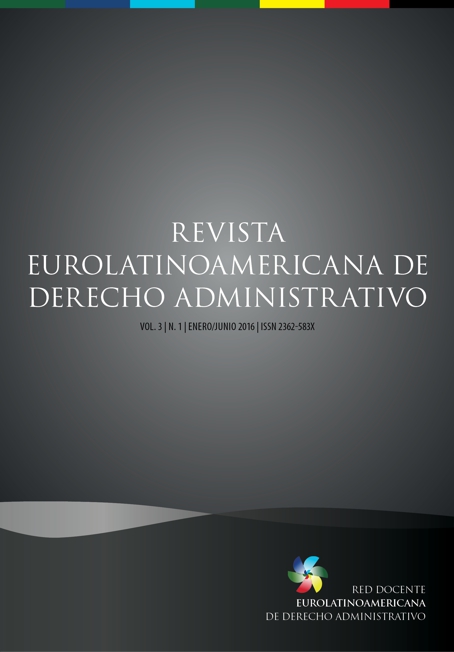Public policies and open government
DOI:
https://doi.org/10.14409/rr.v3i1.7125Keywords:
políticas públicas, gobierno abierto, control social, datos abiertos, desarrollo social.Abstract
In the present work, we ask ourselves about the usefulness of public policy, its measurability and the adequate tools for continuous control of its design and implementation. Based on the Open Government Partnership experience, which was launched by President Obama during his first term of government – and cautioning that the simple use of the website by Public Administrations does not imply compliance with “open government” standards – public policy is defined as the one which tends to solve “relevant public issues”. To this end, the public policy making process consists of the following stages: agenda setting, formulation, adoption, implementation, follow-up and evaluation. Likewise, the attempt is to classify such stages and establish a value system on which public policies need to be legitimized. Finally, it is considered that the issue of public policy should be included in law studies, taking into account the knowledge that public information is a form of infrastructure, at the same level of importance as other infrastructures (water, electricity, roads). If so, the universities could form, jointly with several government levels, a matrix for the generation of public value data, to allow building governmental action systems and processes with social participation and control with the purpose of observing the performance of governmental organs and their officials and to observe how they manage decision-making as well as materials and human resources, to ultimately tend to reduce corruption levels and improve the use of State assets, and also to empower citizens for them to make better decisions, not only at the time of issuing their vote.
References
ANTIK, Analía. Operatividad de los derechos sociales en materia de vivienda. A&C - Revista de Direito Administrativo & Constitucional, Belo Horizonte, Fórum, ano 15, n° 59, p. 133-149, jan./mar. 2015.
BARROS, Alejandro. Datos abiertos: ¿Qué son y cuál es su utilidad?, en ‘La promesa del gobierno abierto’. Disponible en: < www.gobiernoabierto.do.>. Acceso el: 29 abr. 2016.
FISS, Owen. El derecho según Yale. Barcelona: Editorial Gedisa, 1999.
GROSMAN, Lucas. Escasez e igualdad: los derechos sociales en la Constitución. Buenos Aires: Libraria, 2008.
KENNEDY, Duncan. La enseñanza del derecho como forma de acción política. trad. Teresa Arijón. Buenos Aires: Siglo Veintiuno Editores, 2014.
NICANDRO CRUZ-RUBIO, César. Clasificando instrumentos de políticas públicas en gobierno abierto: hacia una agenda de investigación. Disponible en: . Acceso el: 29 abr. 2016.
OZSLAK, Oscar. Gobierno abierto: hacia un nuevo paradigma de gestión pública. Red de Gobierno Electrónico de América Latina y el Caribe (Red GEALC), colección de documentos de trabajo sobre Gobierno, n° 5, septiembre de 2013. Disponible en: . Acceso el: 29 abr. 2016.
SAN MARTÍN, Raquel. Oscar Oszlak. “Los funcionarios públicos no han incorporado la disposición moral a rendir cuentas”. Diario La Nación. Disponible en: <http://www.lanacion.com.ar/1751628-oscar-oszlak-los-funcionarios-publicos-no-han-incorporado-la-disposicion-moral-a-rendir-cuentas>. Acceso el: 29 abr. 2016.
Downloads
Published
How to Cite
Issue
Section
License
Authors who publish in this Journal agree to the following terms:
- Authors retain copyright and grant the Journal of Constitutional Research the right of first publication with the article simultaneously licensed under the Creative Commons - Attribution 4.0 International which allows sharing the work with recognition of the authors and its initial publication in this Journal.
- Authors are able to take on additional contracts separately, for non-exclusive distribution of the version of the paper published in this Journal (eg.: publishing in institutional repository or as a book), with a recognition of its initial publication in this Journal.
- Authors are allowed and encouraged to publish their work online (eg.: in institutional repositories or on their personal website) at any point before or during the submission process, as it can lead to productive exchanges, as well as increase the impact and the citation of the published work (see the Effect of Open Access).



























.png)





